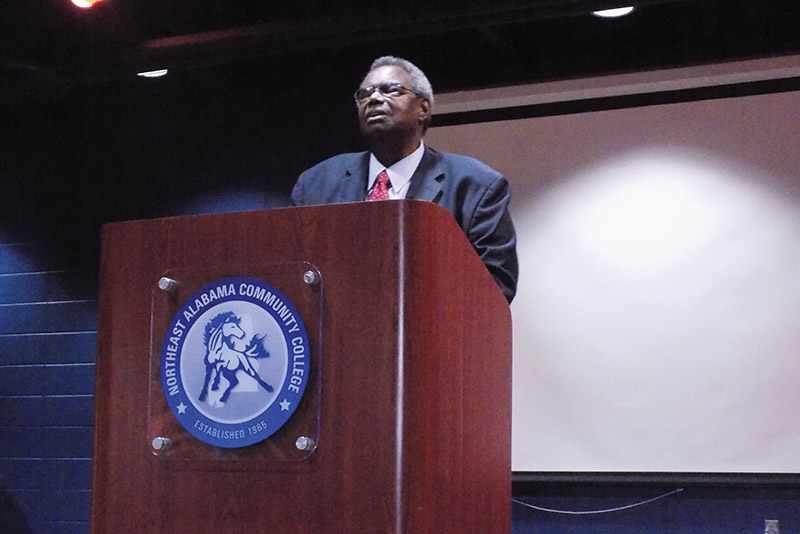By Karah Wilson
karah@southerntorch.com
RAINSVILLE, Ala.— To celebrate Black History Month, Northeast Alabama Community College (NACC) was visited by Alabama State Senator Hank Sanders (D-Selma). Sanders spoke to a roomful of college students about the types of adversity he has witnessed and faced in his life and career.
Sanders graduated from Harvard Law School and established a law firm. He became the first African American state senator in the Alabama Black Belt. He was the top of his high school and college class. He was awarded several awards and scholarships, including one that took him to Africa for a year. Sanders has also been greatly involved with his community.
“In order to talk honestly and frankly, it requires some self-examination. It requires some self-examination from me. It requires some self-examination from the various officials from the college. It requires some self-examination from everybody,” Sanders said.
“Let me tell you why black history is critical for white Americans. We think about black history basically being for black people, but it can’t be if all of you are here. First, black history and white history: you don’t call it white history, you call it American history. They are different sides of the same coin. Anything I talk about black history, there’s a white side. Any time you talk about American history, there’s a black side to it.”
Sanders went to talk about indentured servitude and how it was “legal slavery,” finding reasons to keep black people for longer than the initial seven years. “They said black people were not human; we were subhuman,” Sanders said. “Your children and your children’s children could be kept, too.” Sanders discussed chattel slavery as well. “You couldn’t speak about your history because that made people restless,” Sanders said. The senator discussed the Dred Scott Decision, also known as Dred Scott v. Sanford.
“All of this was called white supremacy,” Sanders said. “It became part of the culture throughout the country.” Sanders said, “After the 13th amendment was passed, white supremacy still existed even though slavery did not.” Sanders then talked about lynching and how it was “state sanctioned terrorism.”
Sanders went on to talk about having to overcome obstacles in the Senate and also becoming a lawyer. He also talked about his personal experience with racism and growing up in less than ideal living conditions.





